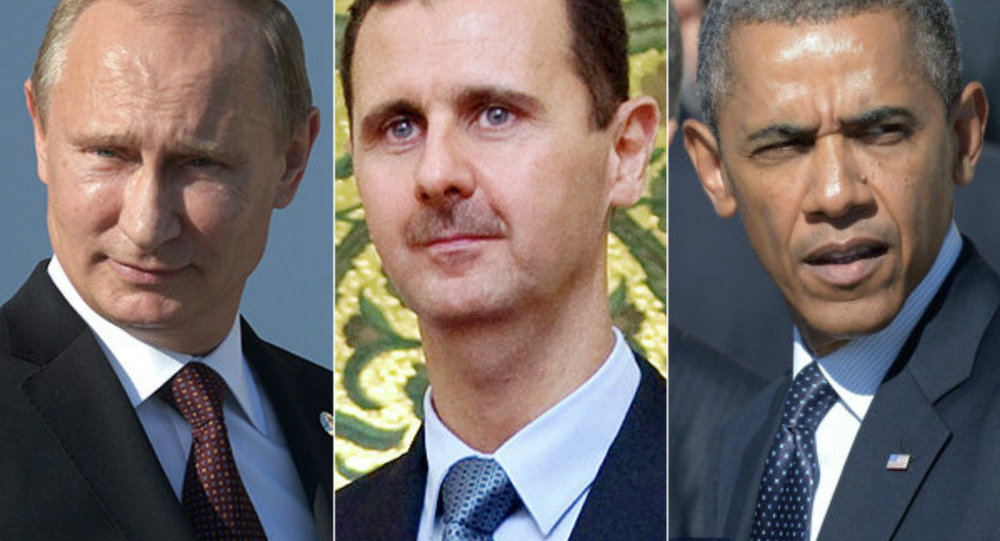Middle East Briefing
Officials from the Pentagon and the National Security Council are closely watching for signs of what Russian President Vladimir Putin plans to do next in Syria. In mid-May, Russian Defense Minister Sergey Shoigu called on the United States to join Russia in a joint offensive against the Islamic State (ISIL) and Jabhat al-Nusra, the Syrian al-Qaeda affiliate. Shoigu knew that the US would not move beyond the existing “deconfliction” agreements and joint ceasefire monitoring, and would reject the Russian plan. Shoigu further announced that unless the US joined the effort by a deadline of May 25, Russia would resume unilateral military actions against ISIL and Nusra. There are now signs of some coordination.
In Washington, however, the official assessment is that Putin is hesitant to get more deeply involved in the Syrian war. Earlier this year, he had stunned Syrian President Bashar Assad and others by announcing a draw-down of Russian forces in Syria. Putin badly miscalculated. The Russian partial withdrawal was based on the assumption that Iranian forces in Syria, in league with a bolstered Syrian Army, would be able to maintain the offensive against rebel forces, albeit at a slower pace. The decision proved to be a disaster, as Iranian forces failed to live up to Russian expectations. Washington had also made assumptions about the Iranian Revolutionary Guard Corps’ fighting capabilities that were similarly proven to be gravely exaggerated. In both Syria and Iraq, Iranian forces have suffered heavy losses, and have shown none of the military skills that the Russian “volunteers” had shown.
After a late-May surprise attack against a Russian air base, in which Russian combat helicopters were destroyed and other damage was inflicted, Russia is now reinforcing its presence in Syria. Pentagon sources confirm that the Russians suffered higher casualties in that incident than initially admitted. But the redeployment of the withdrawn military forces, with the addition of several thousand Russian special forces, is still not the kind of full-scale commitment that is required to score a decisive advantage, even against just ISIL and Nusra combatants.
Putin is facing challenges that go way beyond the Syrian front. On July 7-8, as reported last week, NATO heads of state are scheduled to meet in Warsaw, Poland, to approve deployment of at least four combat battalions to the Baltic States and Poland, bordering Russian territory. European governments are also scheduled to vote on whether to extend the economic sanctions against Russia beyond the July 31 expiration date. Those sanctions are based on Russia’s support for separatist rebels in the Donbass region of eastern Ukraine. Putin has struck a fragile economic alliance with Japan, in spite of President Obama’s strong opposition to such support from Prime Minister Shinzo Abe, for Russia’s own “Pivot to Asia.”
If Russia launches an all-out escalation of military engagement in Syria, the global situation will suddenly get much worse for Russia. Putin is also facing increasing domestic opposition to the economic policies of his cabinet and central bank, and this could impact on the Duma elections coming up in September. He is worried about a setback for his United Russia party, which could weaken his overall room to maneuver and his prestige globally. Therefore, by Washington’s calculation, Putin will make limited moves in Syria, to offset the weakness of the Iranian play, but will not escalate beyond that, for fear of the repercussions outside of Syria.
Putin knows that the Obama administration is looking to further secure the president’s legacy by scoring a demonstrable military victory against the Islamic State in the coming weeks and months. Given the serious weaknesses of the Iraqi Armed Forces and the contentious political situation on the ground in Iraq, the best option for the White House is for the US-backed Syrian Democratic Forces to seize Raqqa. From Putin’s vantage point, any defeat of ISIL in Syria, particularly the ouster of ISIL from its “capital” at Raqqa, would actually bolster the Assad government’s ability to survive in the short term.
Because of the intensification of military operations against ISIL and Nusra in northern Syria, US and Russian military forces have necessarily had to increase their “deconfliction” coordination. The flow of operational intelligence back and forth, however, remains at the tactical level, as relations between Washington and Moscow remain in the deep-freeze. This is not going to change, particularly during the remainder of the Obama presidency. The distrust that built up between the Russian and American military commands over the Ukraine conflict will take a long time to repair, if that even can be achieved.
The tactical deconfliction “marriage of convenience” between the US and Russian armed forces in Syria simply means that the US will have clear warning if and when Russia changes its stance and goes in for a serious show of force. Given Putin’s other headaches, that is unlikely.

